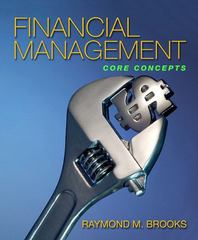f = a D AA : Mini-Case 1: Personal Financial Statement Analysis Hasan Fareed, a 24-year-old college graduate, never took a personal finance class. He pays his bills on time, has managed to save a little in an investment account, and with the help of an inheritance managed to buy a condominium. Hasan worries about his financial situation. Given the following information, prepare a personal cash flow statement and personal balance sheet for Hasan. Also, calculate the current ratio, liquidity ratio, debt-to-assets ratio, and savings ratio associated with Hasan's personal financial statements. Interpret these financial statements and ratios for Hasan. In addition to the list of monthly expenses, assets, and liabilities below, Hasan offers this information: All utility bills for the month are unpaid, and therefore appear as a current liability (phone, cable, electricity, natural gas, water/sewer). Auto and mortgage payments have been paid for the month; note that he lists "mortgage outstanding and auto loan outstanding to indicate the outstanding amount remaining to pay off each loan. "Other expenses, monthly represents cash spent without a record to verify where. Hasan charges everything on his credit cards and pays the balances off monthly. Credit card bills represent his average monthly balance. Auto and mortgage payments have been paid for the month; note that he lists mortgage outstanding and auto loan outstanding to indicate the outstanding amount remaining to pay off each loan. "Other expenses, monthly represents cash spent without a record to verify where. Hasan charges everything on his credit cards and pays the balances off monthly. Credit card bills represent his average monthly balance. Semi-annual auto insurance premium payment is due this month. List of monthly expenses, assets, and liabilities: Visa bill $1355 Water and sewer bill $ 50 Stocks 5500 Savings account 3100 MasterCard bill 645 Chequing account 1825 Monthly paycheque, net 4700 450 Auto insurance, semi- annual 1030 Residence 265 Mortgage payment, monthly 000 Phone bill 85 Food, monthly 425 Monthly paycheque, net 4700 450 Auto insurance, semi- annual 1030 Residence 265 Mortgage payment, monthly 000 Phone bill 85 Food, monthly 425 Cable bill 42 Auto 9000 1800 Furnishings 5500 Investment account (bank) RRSP 4500 Mortgage outstanding 202 000 Car payment, monthly 435 Auto loan outstanding 4225 Electricity bill 60 1800 Other personal property Natural gas bill 70 350 Other expenses, monthly f = a D AA : Mini-Case 1: Personal Financial Statement Analysis Hasan Fareed, a 24-year-old college graduate, never took a personal finance class. He pays his bills on time, has managed to save a little in an investment account, and with the help of an inheritance managed to buy a condominium. Hasan worries about his financial situation. Given the following information, prepare a personal cash flow statement and personal balance sheet for Hasan. Also, calculate the current ratio, liquidity ratio, debt-to-assets ratio, and savings ratio associated with Hasan's personal financial statements. Interpret these financial statements and ratios for Hasan. In addition to the list of monthly expenses, assets, and liabilities below, Hasan offers this information: All utility bills for the month are unpaid, and therefore appear as a current liability (phone, cable, electricity, natural gas, water/sewer). Auto and mortgage payments have been paid for the month; note that he lists "mortgage outstanding and auto loan outstanding to indicate the outstanding amount remaining to pay off each loan. "Other expenses, monthly represents cash spent without a record to verify where. Hasan charges everything on his credit cards and pays the balances off monthly. Credit card bills represent his average monthly balance. Auto and mortgage payments have been paid for the month; note that he lists mortgage outstanding and auto loan outstanding to indicate the outstanding amount remaining to pay off each loan. "Other expenses, monthly represents cash spent without a record to verify where. Hasan charges everything on his credit cards and pays the balances off monthly. Credit card bills represent his average monthly balance. Semi-annual auto insurance premium payment is due this month. List of monthly expenses, assets, and liabilities: Visa bill $1355 Water and sewer bill $ 50 Stocks 5500 Savings account 3100 MasterCard bill 645 Chequing account 1825 Monthly paycheque, net 4700 450 Auto insurance, semi- annual 1030 Residence 265 Mortgage payment, monthly 000 Phone bill 85 Food, monthly 425 Monthly paycheque, net 4700 450 Auto insurance, semi- annual 1030 Residence 265 Mortgage payment, monthly 000 Phone bill 85 Food, monthly 425 Cable bill 42 Auto 9000 1800 Furnishings 5500 Investment account (bank) RRSP 4500 Mortgage outstanding 202 000 Car payment, monthly 435 Auto loan outstanding 4225 Electricity bill 60 1800 Other personal property Natural gas bill 70 350 Other expenses, monthly









